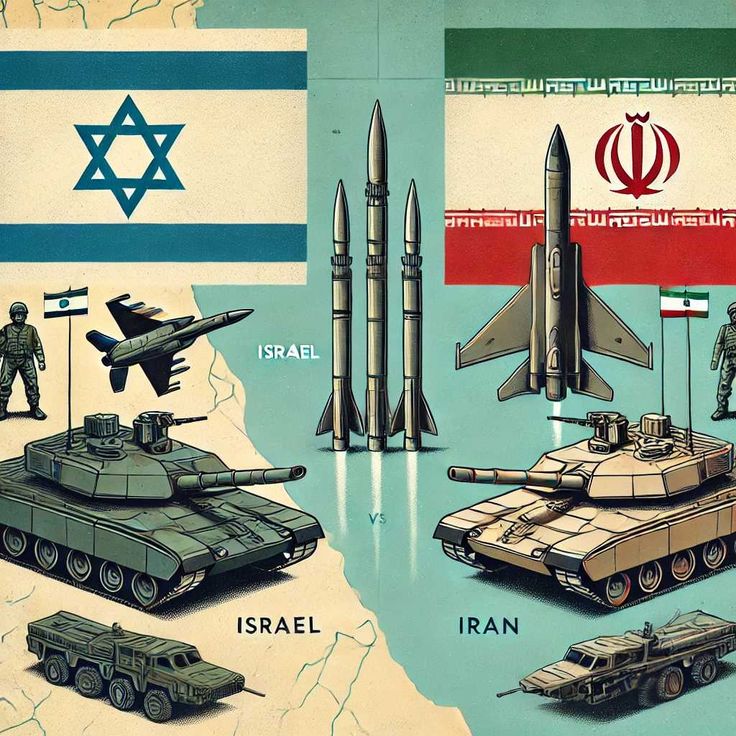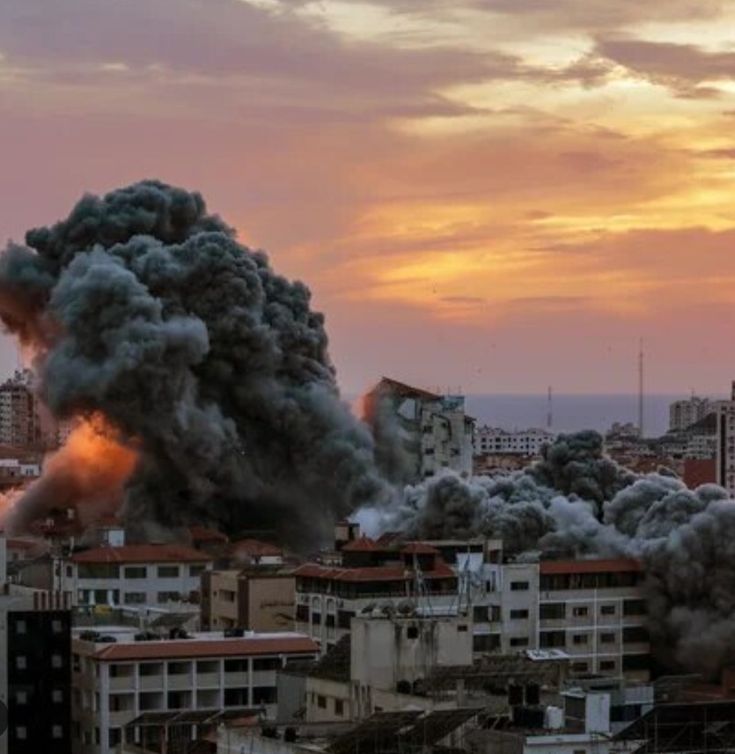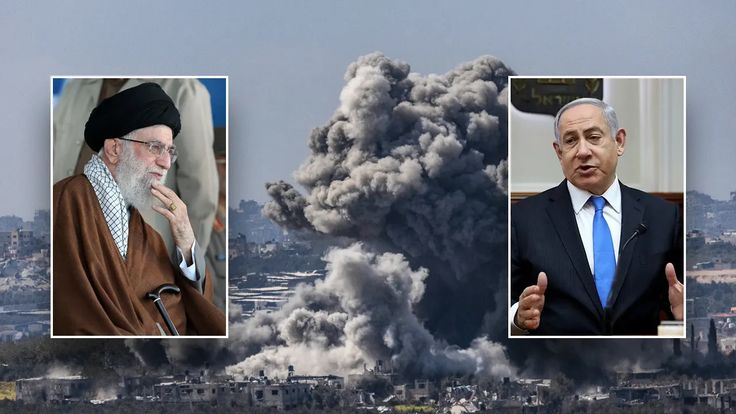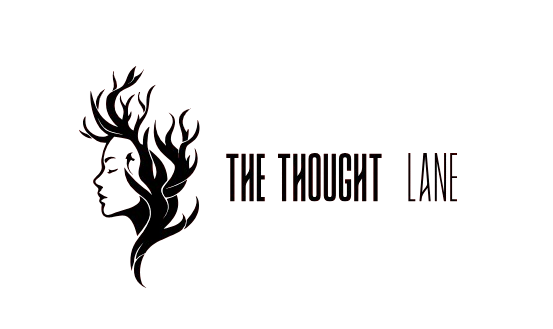Are Israel and Iran at war? This is a question that has echoed across newsrooms, think tanks, and political arenas for over a decade. The relationship between Israel and Iran is one of the most volatile, mysterious, and tension-ridden in modern global affairs. While no official war has been declared, the ongoing shadow conflict between the two nations has all the hallmarks of a cold war that’s dangerously close to turning hot.
This article dives deep into the political, military, and ideological dimensions of this brewing hostility, examining whether Israel and Iran are truly at war—or teetering on its edge.
The Origins of the Israel-Iran Conflict
To understand the question—are Israel and Iran at war—we must first trace the historical roots of their rivalry.
Iran was once a close ally of Israel under Shah Mohammad Reza Pahlavi. However, following the 1979 Islamic Revolution, Iran transformed into a theocratic state with a vehemently anti-Israel stance. The new regime, led by Ayatollah Khomeini, denounced Israel as the “Little Satan” and called for its annihilation.
Over the decades, this hostility only grew deeper, with Iran funding and arming groups like Hezbollah and Hamas—enemies of Israel.
Ideological and Religious Underpinnings
Iran’s theocratic government sees Israel as an illegitimate entity occupying Palestinian land. Conversely, Israel views Iran’s expansionist influence in the Middle East—especially through Shiite militias—as an existential threat.
This deep-rooted ideological clash makes the question are Israel and Iran at war not just about weapons, but about identity, sovereignty, and survival.
Proxy Warfare: The Hidden Battlefield
Iran’s Proxy Network
Rather than engaging directly, Iran funds and directs proxy groups:
- Hezbollah in Lebanon: Trained and armed by Iran’s Revolutionary Guard, Hezbollah has an estimated 150,000 rockets aimed at Israel.
- Hamas and Islamic Jihad in Gaza: Iran provides financial and logistical support.
- Militias in Syria and Iraq: Many of these groups coordinate with Iran to challenge Israeli and Western interests.
Israel’s Response
Israel frequently launches airstrikes in Syria to prevent Iran from entrenching itself militarily. Mossad, Israel’s intelligence agency, has also been involved in covert operations to sabotage Iran’s nuclear program.
So while they aren’t clashing in open battle, the answer to are Israel and Iran at war leans heavily toward yes in the context of proxy warfare.

Nuclear Tensions: The Core of the Conflict
One of the most explosive components in this relationship is Iran’s nuclear ambitions.
Israel has repeatedly stated that a nuclear-armed Iran is a “red line.” Iran insists its program is peaceful, yet Israel—and much of the West—remain unconvinced.
Here are a few critical incidents that intensify the narrative behind the question are Israel and Iran at war:
- 2010 Stuxnet Cyberattack: Believed to be a joint Israel-U.S. operation, this malware attack severely damaged Iran’s nuclear centrifuges.
- Assassinations of Nuclear Scientists: Several high-profile Iranian scientists have been killed in recent years, with fingers pointed at Israel.
- 2020 Natanz Explosion: A mysterious blast destroyed part of Iran’s key nuclear facility.
Cyber Warfare: The Digital Frontline
Cyber operations have become a new battleground. Israel and Iran have engaged in repeated cyberattacks against one another, disrupting infrastructure, communication systems, and even water supplies.
Some notable examples:
- Iran’s cyberattacks on Israeli water plants (2020).
- Israel’s retaliation by hacking Iran’s railway and gas stations.
So, when someone asks are Israel and Iran at war, the cyber front makes a strong case that they already are—just not in the traditional sense.
Are Israel and Iran at War in Syria?
Syria: The Central Theater
Iran has been deeply involved in the Syrian Civil War, supporting Bashar al-Assad’s regime. It has used the chaos to entrench itself militarily in Syria, building bases and transferring weapons to Hezbollah.
Israel, on the other hand, views Iranian entrenchment in Syria as a direct threat. As a result, it has conducted over 1,000 airstrikes on Iranian positions in Syria since 2011.
This repeated military engagement brings the question are Israel and Iran at war into sharper focus—it may not be declared, but it certainly is being fought in Syrian skies.
Recent Escalations: 2023–2025 Timeline
2023: Mossad’s Expanded Operations
In 2023, Mossad revealed several thwarted Iranian plots against Israeli interests abroad. Iran responded with threats and missile tests.
2024: Gaza War and Iranian Involvement
During the 2024 conflict between Israel and Hamas, Iran’s fingerprints were visible in the rockets and tactics used. Israeli intelligence accused Iran of direct coordination with Hamas leadership.
2025: Iranian Retaliatory Strikes?
In early 2025, Iran allegedly launched drones from Iraq and Syria that targeted Israeli military bases. Although intercepted, this event marked the closest the two have come to direct confrontation.
So, are Israel and Iran at war in 2025? The signs say yes, even if it’s undeclared.

Diplomatic Chess and Global Involvement
The U.S. remains Israel’s staunch ally, applying sanctions on Iran and providing military aid to Israel. Iran, meanwhile, has leaned on Russia and China for diplomatic and technological support.
The more global players get involved, the more the regional tension morphs into a potential international flashpoint. This complexity makes the are Israel and Iran at war question a matter of global concern.
Israel’s Preemptive Doctrine: A Justification for War
Israel’s military doctrine is based on “never again”—a reference to the Holocaust. Its national security policy emphasizes preemptive strikes to neutralize threats before they materialize.
Iran’s threats and military buildup, particularly around Israel’s borders, justify Israel’s doctrine of “active defense.” This includes strikes on Iranian shipments, bases, and leaders.
This proactive stance keeps Israel in a perpetual state of high alert and makes the answer to are Israel and Iran at war lean toward yes in strategic terms.
Iran’s Strategic Patience: Calculated Confrontation
Iran, on the other hand, operates with “strategic patience.” It avoids direct war but slowly builds regional influence through non-state actors.
Iran’s policy is designed to stretch Israel’s military and economic resources while building a regional Shiite crescent of power. This slow-burn approach to confrontation adds nuance to the answer to are Israel and Iran at war—it’s not immediate, but it is inevitable.
Public Perception: Are Citizens Prepared for War?
In Israel, military conscription is mandatory, and citizens are always prepared for conflict. In Iran, the regime promotes a narrative of resistance and defense against Zionist aggression.
Media on both sides fuels this animosity. Polls in both countries show high distrust and fear of the other. This societal mindset plays a huge role in perpetuating the idea that are Israel and Iran at war is more than just a political query—it’s a lived reality.

Future Flashpoints: What Could Trigger a Full-Scale War?
Some scenarios that could escalate into open warfare include:
- Iran crossing the nuclear threshold.
- A successful Iranian missile strike on Israeli soil.
- An Israeli assassination of a top Iranian leader.
- Accidental downing of an Israeli or Iranian aircraft.
- Involvement of U.S. or Russian forces leading to wider war.
Each of these is a hair-trigger situation, and any miscalculation could shift the answer from are Israel and Iran at war to they are now.
Are Peace Talks Possible?
Despite the hostility, back-channel diplomacy has existed, particularly via third parties like Oman, Switzerland, and the EU.
However, Israel insists on Iran halting its nuclear program and support for armed groups, while Iran demands the lifting of sanctions and Israeli withdrawal from Palestinian territories.
These non-negotiable conditions make peace a distant dream for now. https://www.youtube.com/feed/subscriptions
Conclusion: So, Are Israel and Iran at War?
Are Israel and Iran at war? While there is no formal declaration, the reality on the ground, air, cyberspace, and diplomacy paints a clear picture of an undeclared but ongoing conflict.
This shadow war spans continents, cyberspace, and political systems. Its implications are immense—not just for the Middle East but for global peace and security.
Both nations continue to walk a tightrope between deterrence and disaster. The world watches with bated breath, hoping the covert war doesn’t escalate into a catastrophic one.
Economic Warfare: Sanctions, Trade, and Financial Sabotage
One lesser-discussed but critical front in this undeclared war is economic warfare. Both nations have taken economic measures—directly or through allies—to hurt each other’s interests.
Israel’s Role in Sanctions
Israel has lobbied extensively in Washington and European capitals to maintain or intensify sanctions on Iran, especially concerning its:
- Oil exports
- Banking system
- Access to global finance
Israeli intelligence has provided evidence to justify these actions, including documents allegedly obtained during covert missions revealing hidden Iranian nuclear facilities.
Iran’s Economic Pushback
In return, Iran has tried to bypass sanctions using:
- Barter trade with friendly countries like China
- Cryptocurrency mining for international purchases
- Covert oil shipments through “ghost” tankers
Iran also funds boycott, divestment, and sanctions (BDS) movements against Israel and uses regional summits to condemn Israel’s economic footprint.
This financial front makes the ongoing hostilities more multidimensional and gives further weight to the argument behind are Israel and Iran at war—they are, on all possible fronts.
Intelligence and Espionage: A War in the Shadows
Espionage is another battlefield where Iran and Israel clash regularly.
Mossad Operations
Israel’s Mossad has been at the heart of several bold operations, including:
- Stealing nuclear archives from Tehran in 2018
- Tracking and neutralizing Quds Force agents abroad
- Sabotaging Iranian missile and drone manufacturing sites
Iranian Counterintelligence
Iran’s intelligence network has captured dozens of alleged Israeli spies. Iranian media often showcase these arrests to assert their national strength.
Some examples:
- 2022: Iran arrested several dual nationals, claiming Mossad connections
- 2024: A network plotting to assassinate Iranian scientists was dismantled
- 2025: Tehran announced new cybersecurity units to counter Israeli hacks
Espionage, assassinations, cyber intrusions—these covert acts reinforce that are Israel and Iran at war is more than speculation. It’s an evolving reality beneath the surface.
Media War and Psychological Operations
In the digital age, perception is a weapon. Iran and Israel both engage in media warfare to shape international and domestic opinion.
Israeli Media Strategy
Israel uses both traditional and digital platforms to:
- Portray Iran as a rogue, nuclear-obsessed regime
- Highlight its humanitarian missions to contrast Iran’s militarism
- Collaborate with global media outlets to disseminate Western-aligned narratives
Iran’s Counter Messaging
Iran uses channels like Press TV and social media campaigns to:
- Accuse Israel of genocide in Palestine
- Highlight Israeli apartheid policies
- Frame itself as the defender of oppressed Muslims worldwide
These efforts reveal the soft power aspect of the conflict. The narrative war proves essential to the broader answer of are Israel and Iran at war—a conflict fought not just with weapons, but with words.
Impact on Regional Stability
The effects of this conflict ripple far beyond Iran and Israel.
Lebanon: A Powder Keg
Hezbollah’s deep ties with Iran and proximity to Israel create a near-constant threat of a two-front war. Any escalation in this zone could spark a wider Middle East conflict.
Syria and Iraq: Iranian Entrenchment
Iranian forces and proxies have embedded themselves in these war-torn nations, increasing Israel’s sense of vulnerability. Israeli strikes there, while often unclaimed, are frequent.
Yemen: The Houthi Factor
Although distant, the Iran-backed Houthis in Yemen have expressed solidarity with Iran’s cause, even threatening Israel in 2024 during the Gaza conflict.
These hotspots make the question are Israel and Iran at war not only relevant to the two countries involved but to the whole Middle East.
International Reactions: Caught in the Middle
United States
The U.S. remains Israel’s closest ally and a key player in limiting Iran’s nuclear progress. U.S. support includes:
- $3.8 billion in annual military aid to Israel
- Joint military drills simulating war with Iran
- Sanctions that isolate Iran economically
Still, Washington has also tried to mediate—especially during the Obama-era JCPOA (nuclear deal), which Israel opposed.
Russia and China
Iran is increasingly aligned with these powers:
- Russia supports Iran diplomatically and uses it as leverage in its own Middle Eastern games.
- China has signed a $400 billion strategic partnership with Iran, including oil trade and infrastructure investment.
Both countries benefit from Iran’s confrontation with the U.S. and Israel, making the conflict a microcosm of wider global tensions.
Religious Significance and Messianic Ideologies
On a deeper level, religion plays a dangerous role in this clash.
- Iran’s ruling clerics believe in the arrival of the Mahdi, a messianic figure who will appear during global chaos.
- Some Israeli leaders, especially among the ultra-Orthodox and religious Zionists, view the return of the Messiah as tied to the restoration of the Jewish homeland.
When wars are justified by divine prophecy, the potential for rational diplomacy narrows. It adds a dangerous layer to the debate of are Israel and Iran at war—one that’s apocalyptic in nature.
The Cost of War: Human, Economic, and Diplomatic
If tensions finally explode into open war, the costs would be catastrophic:
Human Lives
- Thousands would die in the first days, especially if population centers are targeted.
- Hezbollah rockets could overwhelm Israel’s Iron Dome.
- Israel’s retaliation could devastate Lebanon, Gaza, and even parts of Iran.
Economy
- Oil prices would skyrocket, triggering a global recession.
- Trade through the Strait of Hormuz would be disrupted.
- Foreign investment in the region would collapse.
Diplomacy
- Arab nations that normalized ties with Israel might be forced to take sides.
- The UN would likely be paralyzed by vetoes and conflicting interests.
- The Iran nuclear deal would become irrelevant.
These grim projections make the question are Israel and Iran at war not just a curiosity—but a potential global nightmare.
Expert Opinions: What Analysts Say
Military Experts
Many defense analysts agree that while Israel and Iran are not in declared war, they are engaged in continuous “gray-zone warfare.”
Michael Eisenstadt of The Washington Institute states:
“We are witnessing a long-term shadow war marked by strikes, sabotage, and strategic messaging. It’s just as lethal, just not officially declared.”
Geopolitical Analysts
Trita Parsi, executive VP of the Quincy Institute, argues:
“The U.S. and Israel’s maximum pressure on Iran only provokes more militancy. Unless diplomacy resumes, this cold war could turn hot at any moment.”
Intelligence Veterans
Former Mossad head Yossi Cohen has said:
“Iran is our number one strategic threat. And we will never allow it to reach nuclear breakout capability—whatever the cost.”
These insights give credibility to the claim that are Israel and Iran at war isn’t a question anymore—it’s a strategic reality.
Will a Peaceful Future Ever Be Possible?
Despite decades of hostility, peace isn’t impossible—but it would require massive shifts:
- Iran abandoning its “Death to Israel” rhetoric and support for proxy militias.
- Israel making concessions toward Palestinian statehood, reducing Iranian regional leverage.
- Mutual security guarantees, possibly under U.N. or U.S. supervision.
- A new nuclear deal with stricter verification protocols.
However, as of 2025, these remain distant dreams. The current climate is too hostile, too ideologically driven.
Verdict: Are Israel and Iran at War?
After evaluating the history, military actions, cyber operations, intelligence warfare, regional impact, and international dynamics, the most accurate answer is:
Yes, Israel and Iran are already at war—just not officially.
This is a multifaceted, undeclared, hybrid war that spans every dimension of modern conflict: air, land, sea, cyberspace, economy, media, and ideology.
While the world waits for either a breakthrough or a breakdown, one thing is clear:
The shadow war is very real. And the day it stops being “shadow” could mark the start of something catastrophic.

Final Word
Understanding the question are Israel and Iran at war requires more than just observing missile strikes and political rhetoric. It demands a look into history, ideology, military tactics, proxy warfare, and nuclear fears.
As tensions rise, diplomacy falters, and proxy groups arm themselves, the line between peace and war continues to blur. Let’s hope reason prevails before the question turns into a tragic answer.









